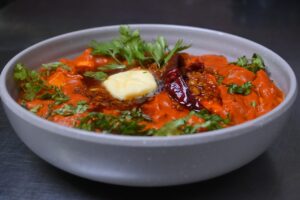As May unfolds, it’s the perfect time to embrace the vibrant produce and sustainable practices that define this season. From repurposing kitchen scraps to crafting hearty main-course salads, let’s explore how to make the most of this month’s culinary offerings.
Main-Course Salads That Go Beyond Greens
Salads are evolving from side dishes to satisfying main courses. The Washington Post recently highlighted 12 creative salads that combine proteins, grains, and vegetables into hearty meals. Dishes like steak and green bean wedge salads, chicken with blueberries, and white bean and arugula salads showcase the versatility of salads in May’s culinary scene.
Recipe Idea: Try a grilled chicken and quinoa salad with a lemon-tahini dressing for a refreshing and filling meal.
Transforming Kitchen Scraps into Flavorful Ingredients
Reducing food waste is not only eco-friendly but also enhances your cooking. The Washington Post suggests repurposing items like bacon grease, herb stems, and citrus zest to add depth to your dishes. For instance, rendered bacon fat can be used for sautéing vegetables, while citrus zest can be infused into sugar for baking.
Tip: Store your kitchen scraps in labeled containers and freeze them for future use.
Affordable Alternatives to Popular Frozen Treats
Craving a sweet treat? Iceland’s new range of frozen foods offers budget-friendly alternatives to popular brands like McDonald’s and Magnum. Items such as cheeseburger “Smile in a Box” and Majestic-style ice creams have been praised for their taste and value.
Try This: Pair a frozen yogurt bar with fresh berries for a delightful dessert.
Embracing Seasonal Produce
May brings an abundance of fresh fruits and vegetables. Incorporate seasonal produce like strawberries, asparagus, and peas into your meals for optimal flavor and nutrition.
Seasonal Recipe: Prepare a spring vegetable stir-fry with asparagus, peas, and a light soy-ginger sauce.
Sustainable Cooking Practices
Adopting sustainable cooking habits not only benefits the environment but also enhances your culinary skills. Techniques such as batch cooking, composting, and using energy-efficient appliances can make a significant impact.
Sustainable Tip: Invest in a pressure cooker to reduce cooking time and energy consumption.




